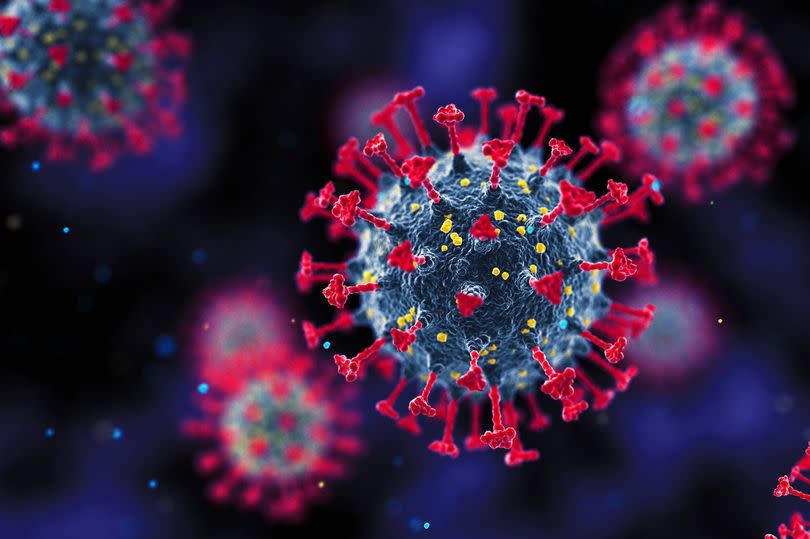Experts are warning Brits about the one symptom that distinguishes Covid from the rest, as high numbers of Covid, flu and RSV cases are being reported.
According to the UK Health Security Agency (UKHSA), every winter we see a rise in these types of viruses, but it gets confusing to know which one is to blame.
The government body has now released new guidance for distinguishing the source of your illness as data has revealed that there were up to 1,069 confirmed cases of the virus in the week up to December 11, reports The Mirror.
READ MORE: James Corden says ‘we had to’ as he opens up on Gavin and Stacey finale
ADVERTISEMENT
READ MORE: ITV Emmerdale fans say ‘you just know’ after beloved character goes missing
Although this is a 1.6 per cent decrease from the week before, deaths and hospital admissions due to Covid have increased with 106 deaths being reported in the week up to December 6.
Despite there being no mandatory self isolation period for the virus, the NHS are still warning those who believe they have it to stay at home, but how do you know if it is Covid?
While many Covid symptoms overlap with other winter illnesses, there is one that stands out. A change in sense of taste or smell could be a sign of Covid to look for, the UKHSA said.
They said: “We have seen COVID-19 symptoms change over time.
“Today, many people now experience cold-like symptoms but some will also experience fever or chills, continuous cough, shortness of breath, tiredness, body aches, headache, sore throat, blocked nose, loss of appetite, nausea, diarrhoea, or change in sense of taste or smell.”
ADVERTISEMENT
This is in comparison to flu, which the UKHSA say will likely cause severe cold-like symptoms such as a runny nose, sneezing and watery eyes, accompanied by a fever or body aches.

RSV on the other hand is distinguished by a cough, wheezing, shortness of breath, tiredness and fever.
When it comes to Norovirus, the main symptoms are nausea, diarrhoea and sickness, as well as a high temperature, headache and aching limbs.
In an update about the virus, the government warned that Covid can still cause severe illness, as shown b y high hospitalisation and death figures.
The UKHSA said: “While for most people COVID-19 is not as severe as during the early years of the pandemic, the virus is still causing severe illness, hospitalisations, and deaths – particularly among those with a weakened immune system and certain long-term health conditions, as well as older people.
ADVERTISEMENT
“It is normal and expected for viruses to genetically change over time and the new COVID-19 variants, much like previous variants, can spread easily through droplets released when an infected person coughs, sneezes or speaks. The autumn COVID-19 vaccines are our best defence against serious illness.”
The last date you can get your COVID-19 vaccine is January 31, 2025, with eligibility for people aged 65 and over, those living in a care home or in a clinical risk group.
EMEA Tribune is not involved in this news article, it is taken from our partners and or from the News Agencies. Copyright and Credit go to the News Agencies, email news@emeatribune.com Follow our WhatsApp verified Channel




